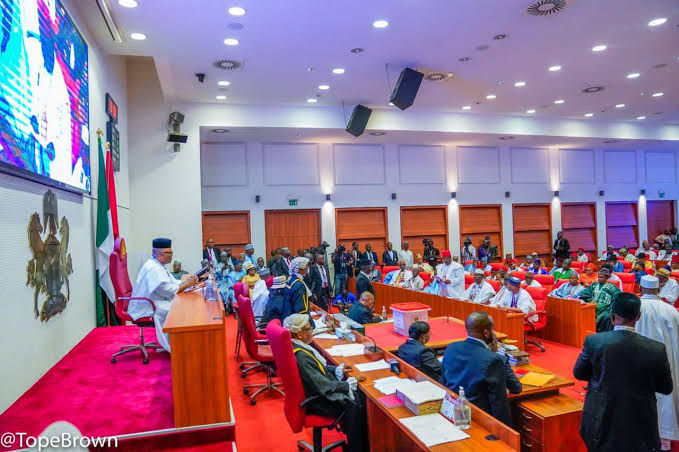The Nigerian Senate abruptly went into an emergency closed-door session yesterday following a heated debate on the enforceability of financial autonomy granted to 774 Local Government Councils by the Supreme Court in August.
Senator Tony Nwoye (LP, Anambra North) sparked the controversy by alleging that some state governments were circumventing the Supreme Court’s ruling through counter-laws enacted by their state Houses of Assembly.
Nwoye’s motion, co-sponsored by nine other senators, claimed governors were pushing laws requiring local councils to remit funds into a State/Local Government Joint Account, deemed unconstitutional by the Supreme Court.
Senator Osita Izunaso (APC, Imo West) seconded the motion, which included six requests for judgment enforcement.
However, Senator Adamu Aliero (PDP, Kebbi Central) countered with a constitutional point of order, referencing Section 287 of the 1999 Constitution, which mandates nationwide enforceability of Supreme Court judgments.
Senate President Godswill Akpabio supported Aliero’s stance, citing Section 162, subsection 6, establishing the State/Local Government Joint Account.
Akpabio suggested constitutional amendments were necessary for full implementation of the Supreme Court ruling.
The debate took a chaotic turn when Nwoye and Senator Abdulrahman Summaila Kawu (NNPP, Kano South) simultaneously raised points of order, prompting many senators to consult the Senate President.
The emergency session highlights the ongoing struggle for local government autonomy in Nigeria, seen as a significant step forward for democracy .








